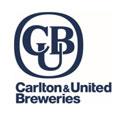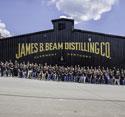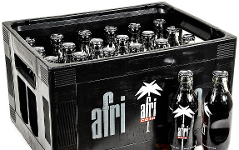Ambev
Healthy 2nd Q Profits Send Brazil’s Ambev Shares Climbing
 The Latin American unit of Anheuser Busch InBev (Ambev SA), headquartered in Sao Paulo, Brazil, posted 2nd quarter profit of $693 million, an 8.5 percent rise that beat the Refinitiv consensus estimate of $607 million. The announcement sent the company’s shares up 9.13 percent in early afternoon trading; the stock has risen more than 26 percent so far this year, after sliding 25 percent last year. The brewer started raising prices in July and is expected to conclude the process during the third quarter. It is betting heavily on premium brands to further boost market share and has no plans to change its pricing strategy. The Brazilian subsidiary AmBev operates in 16 countries in the Americas, including Argentina and Canada.[Image Credit: © Ambev]
The Latin American unit of Anheuser Busch InBev (Ambev SA), headquartered in Sao Paulo, Brazil, posted 2nd quarter profit of $693 million, an 8.5 percent rise that beat the Refinitiv consensus estimate of $607 million. The announcement sent the company’s shares up 9.13 percent in early afternoon trading; the stock has risen more than 26 percent so far this year, after sliding 25 percent last year. The brewer started raising prices in July and is expected to conclude the process during the third quarter. It is betting heavily on premium brands to further boost market share and has no plans to change its pricing strategy. The Brazilian subsidiary AmBev operates in 16 countries in the Americas, including Argentina and Canada.[Image Credit: © Ambev]
Asahi
Asahi To Acquire AB Inbev Australian Subsidiary
 Asahi Group Holdings has agreed to purchase AB InBev’s Carlton & United Breweries, its Australian subsidiary, for $11.3 billion. The Carlton portfolio includes Foster’s, Victoria Bitter and Carlton, as well as craft brands 4 Pines and Pirate Life, and AB InBev global brands such as Corona, Leffe, and Stella Artois. Melbourne-based Carlton & United Breweries, which operates five breweries, joined AB InBev in 2016 as part of AB InBev’s takeover of SABMiller. AB InBev said the divestiture would allow it to speed up its expansion into other fast-growing markets, both in APAC and worldwide. Asahi will gain the rights to commercialize AB InBev’s global and international brands in Australia as part of the deal. However, Asahi investors are troubled by the deal, which will double Asahi’s debt load and require issuance of about 10 percent more in new shares. Their worries were reflected in the stock market, where Asahi lost $2 billion in market value in mid-July.[Image Credit: © CUB]
Asahi Group Holdings has agreed to purchase AB InBev’s Carlton & United Breweries, its Australian subsidiary, for $11.3 billion. The Carlton portfolio includes Foster’s, Victoria Bitter and Carlton, as well as craft brands 4 Pines and Pirate Life, and AB InBev global brands such as Corona, Leffe, and Stella Artois. Melbourne-based Carlton & United Breweries, which operates five breweries, joined AB InBev in 2016 as part of AB InBev’s takeover of SABMiller. AB InBev said the divestiture would allow it to speed up its expansion into other fast-growing markets, both in APAC and worldwide. Asahi will gain the rights to commercialize AB InBev’s global and international brands in Australia as part of the deal. However, Asahi investors are troubled by the deal, which will double Asahi’s debt load and require issuance of about 10 percent more in new shares. Their worries were reflected in the stock market, where Asahi lost $2 billion in market value in mid-July.[Image Credit: © CUB]
Asahi Embroiled In Controversy After Debut Of Beer Made At 2011 Nuclear Disaster Site
 Japanese beer company Asahi, which recently launched a beer made at its Fukushima plant, has stirred controversy in Seoul, South Korea. A boycott of Japanese beverages is gathering steam after it became known that Asahi’s new beer – marketed as "Asahi Super Dry Fukushima Factory Limited Edition" – is made with rice harvested not far from the 2011 nuclear disaster site Fukushima. Clean-up work at the nuclear plant area continues. Online South Korean commenters disparaged the product launch, calling it "radiation marketing." Others raised fears of contamination at the beer plant. Meanwhile, South Korea is locked in a trade dispute with Japan, which has restricted export of key chemicals used in manufacturing South Korean tech products.[Image Credit: © ASAHI BREWERIES, LTD.]
Japanese beer company Asahi, which recently launched a beer made at its Fukushima plant, has stirred controversy in Seoul, South Korea. A boycott of Japanese beverages is gathering steam after it became known that Asahi’s new beer – marketed as "Asahi Super Dry Fukushima Factory Limited Edition" – is made with rice harvested not far from the 2011 nuclear disaster site Fukushima. Clean-up work at the nuclear plant area continues. Online South Korean commenters disparaged the product launch, calling it "radiation marketing." Others raised fears of contamination at the beer plant. Meanwhile, South Korea is locked in a trade dispute with Japan, which has restricted export of key chemicals used in manufacturing South Korean tech products.[Image Credit: © ASAHI BREWERIES, LTD.]
Bottler News
Non-Alcoholic Budweiser 0.0 Debuts In India
Britvic
Britvic Revenue Slides In 3rd Q
Companies
Beam Suntory Invests $60M To Upgrade Production, Tourism At Kentucky Facilities
 Beam Suntory is investing $60 million to re-establish and enhance the James B. Beam Distilling Co. in Clermont, Ky. The company has broken ground on the Fred B. Noe Craft Distillery, which will be the home of future innovation while providing opportunities for education and hospitality. The investment will be spent on the new distillery, as well as the production operations for the flagship Jim Beam brand, as well as small-batch brands like Booker's, Baker's, Basil Hayden's, and Knob Creek, next generation brands like Legent and Little Book, and the visitor experience. As part of its tourism investment, The company will elevate the visitor experience in Clermont and give consumers more reasons to visit, including behind-the-scenes tours across the family of brands from Jim Beam to Basil Hayden's to Legent, create a new tasting room, and launch customizable experiences.[Image Credit: © Beam Suntory, Inc.]
Beam Suntory is investing $60 million to re-establish and enhance the James B. Beam Distilling Co. in Clermont, Ky. The company has broken ground on the Fred B. Noe Craft Distillery, which will be the home of future innovation while providing opportunities for education and hospitality. The investment will be spent on the new distillery, as well as the production operations for the flagship Jim Beam brand, as well as small-batch brands like Booker's, Baker's, Basil Hayden's, and Knob Creek, next generation brands like Legent and Little Book, and the visitor experience. As part of its tourism investment, The company will elevate the visitor experience in Clermont and give consumers more reasons to visit, including behind-the-scenes tours across the family of brands from Jim Beam to Basil Hayden's to Legent, create a new tasting room, and launch customizable experiences.[Image Credit: © Beam Suntory, Inc.]
Suntory
U.S. Trade War Deters Suntory From Further Investment In China
 Japan’s Suntory Holdings will delay further investment in China because of the uncertainties stemming from the U.S.-China trade war. CEO Takeshi Niinami said the company prefers to be in Southeast Asia rather than in China, and is bullish on India, the world’s largest whisky market by volume. The company is also adjusting strategies to sell to Millennials, who are drinking less alcohol than previous generations. To help sell alcohol to Millennials, Suntory is marketing more premium alcohol types. It is also trying to attract beer drinkers to consume more premium products. Although Suntory is still operating in China, Niinami said the company needs further clarity on the U.S.-China trade dispute before further investment decisions can be made. [Image Credit: © SUNTORY HOLDINGS LIMITED]
Japan’s Suntory Holdings will delay further investment in China because of the uncertainties stemming from the U.S.-China trade war. CEO Takeshi Niinami said the company prefers to be in Southeast Asia rather than in China, and is bullish on India, the world’s largest whisky market by volume. The company is also adjusting strategies to sell to Millennials, who are drinking less alcohol than previous generations. To help sell alcohol to Millennials, Suntory is marketing more premium alcohol types. It is also trying to attract beer drinkers to consume more premium products. Although Suntory is still operating in China, Niinami said the company needs further clarity on the U.S.-China trade dispute before further investment decisions can be made. [Image Credit: © SUNTORY HOLDINGS LIMITED]
Suntory Joint Venture To Sell Health Foods To Affluent Chinese
Copyright 2026 Business360, Inc.

